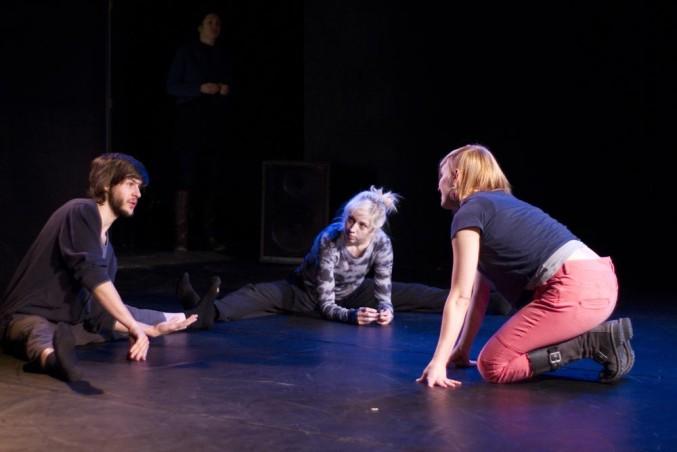Dance Matters is an organization that provides venues for dancers to perform in an industry where finding stages can often be a major barrier to success. Susana Gómez Báez reports
University can be tough, especially in a program as demanding as performance dance. But, for many students, that’s just the first of a series of challenges — finding work outside of university can be difficult at the best of times.
Dance Matters is a not-for-profit organization that encourages professional dancers to focus on originality and creativity — instead of financial difficulties — by providing dancers with a venue and production team.
The show started season 16 this weekend. The show featured 29-year-old Lauren Cook, a 2005 Ryerson graduate, who danced a piece that visualized feelings of paralysis and perpetual ignorance.
The piece, choreographed by Ofilio Portillo, is called Euforikabyss. It features a mixture of selected street dance styles.
Cook says that during rehearsals, she contemplated ideas of claustrophobia and fear to get into character.
But she hasn’t always had a character to get into.
“When I graduated I felt overwhelmed, intimidated and unprepared,” Cook said.
Upon receiving her diploma, she joined a collective — a group of dancers who work together, like a company. There, Cook was able to meet many artists and learn more about the craft.
“Dance is my whole life,” she said. “It’s my identity.”
Today, Cook teaches dance and even has her own company. She recognizes how tough the competition is. She celebrates Dance Matters for providing a great opportunity.
The organization has held all its series at Scotiabank Studio Theatre since it was founded in 2006 by Tanya Crowder, the organization’s artistic director and a professional dancer herself.
A struggle with the venue’s small and casual roots originally plagued the group, said co-artistic director Stuart Baulch.
Baluch, a 1995 Ryerson theatre school graduate, is in charge of production, which he says has come a long way over the years.
“If you don’t have a venue, make one,” Baulch said.
In the end, the most important thing to Baulch and Crowder is that dancers who want to dance are performing.
“There aren’t a lot of presenters in Toronto,” Cook said. The only other option, according to Cook, is to self-produce, which is too expensive because dancers then have to pay for all the costs.
“Dance Matters gives you the opportunity to present work that you otherwise wouldn’t be able to present. Plus, there is no entrance fee.”
Dancers wishing to participate must submit their applications, consisting of a draft describing their piece (sometimes including video) and a list of their experience.
The shows are customarily followed by a discussion in which the audience is welcome to exchange comments and ideas with the choreographers and performers.
The conversation’s main goal is to encourage the audience to become a part of the world of dance and to understand the process that goes into a performance.
“Dance is a very challenging lifestyle,” said David Steele, the Dance Matters general manager and treasurer.
Steele, another 1995 Ryerson theatre graduate, decided to become a part of the Dance Matters team because he believes that financial worries should not stunt talent. Remembering his days in school, Steele asks student dancers who are just starting out to not give up.
“Ryerson dancers are some of the best in the country – if not the best in the country,” Steele said. “And I know they’ll continue to be successful so they shouldn’t worry about competition.”
Cook gives Ryerson dancers some first-hand industry advice on this topic.
“Prepare by learning how to write grants so that when you get out [you] can start applying for funding and then can do everything that [you] want to do,” she said. “You have to be a good writer if you want to support your work.” Cook also stressed the importance of persistence. “Don’t give up just because in the first six months nobody asks you to do anything.”













Leave a Reply